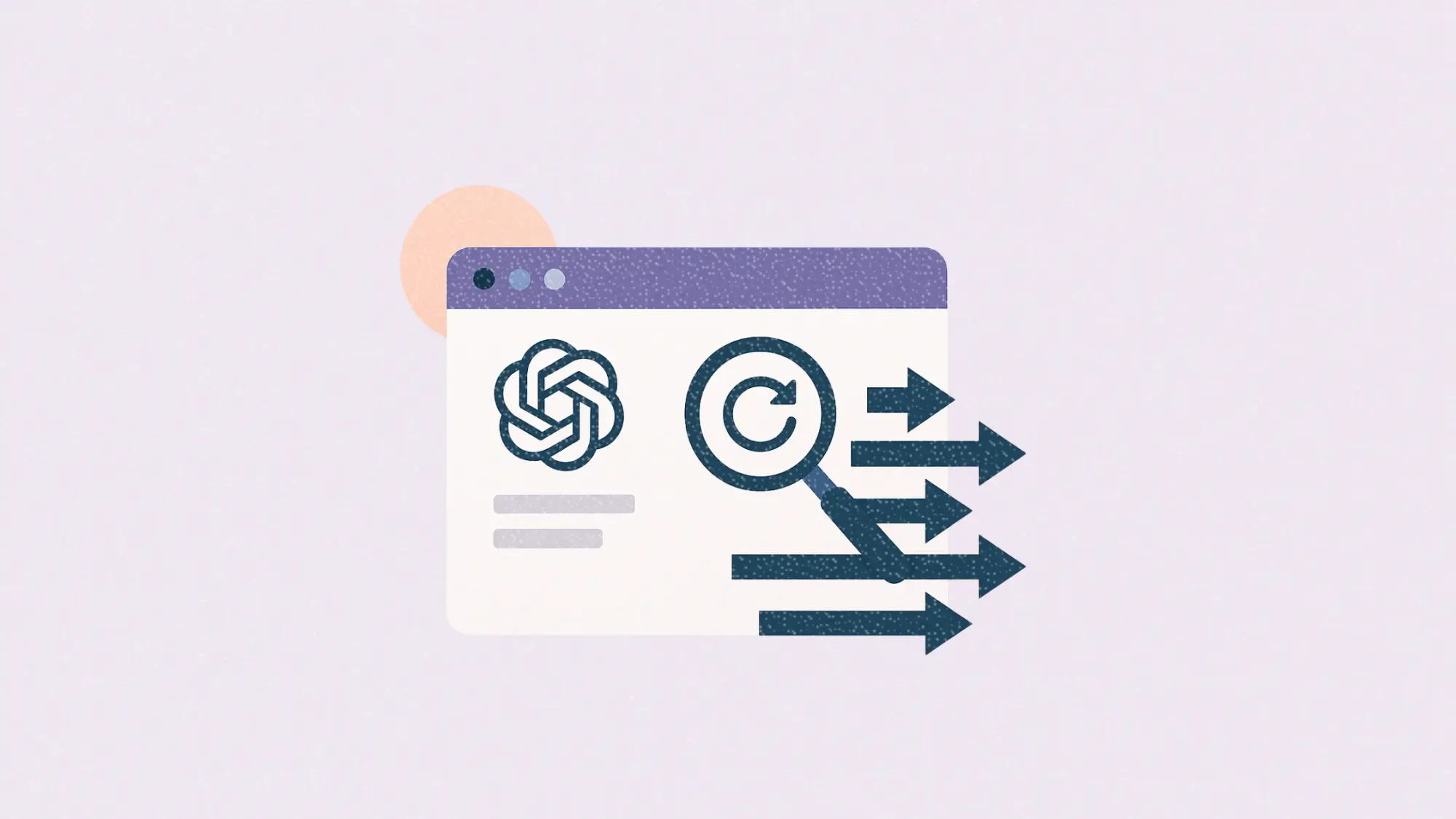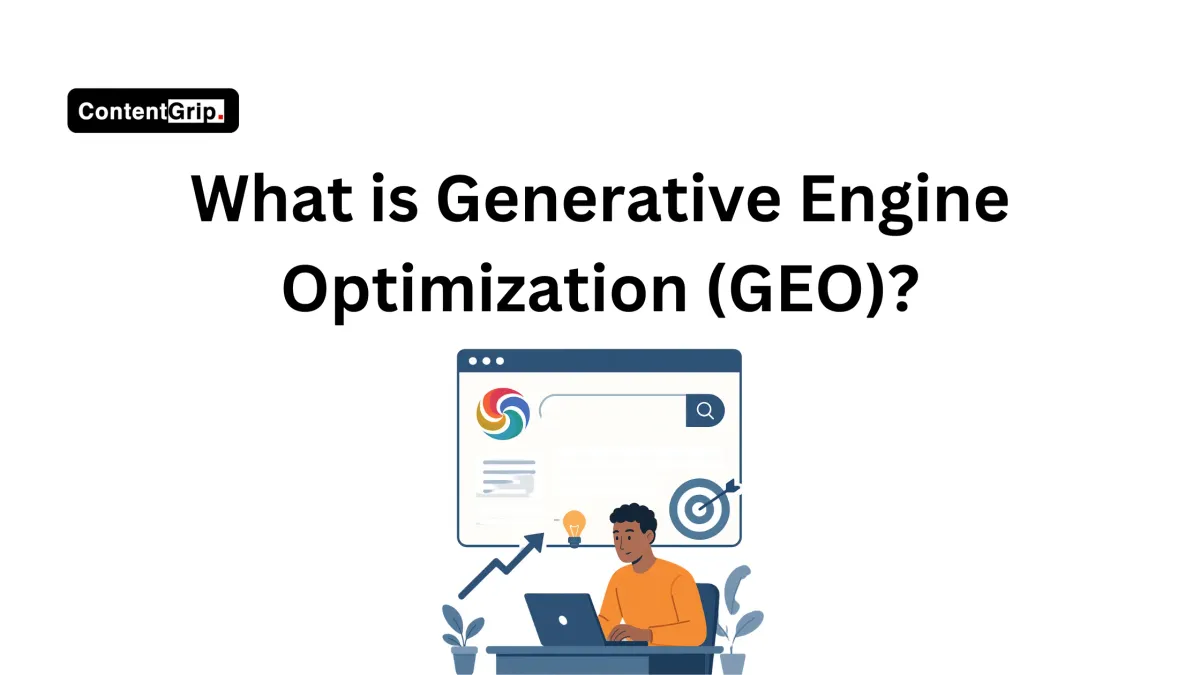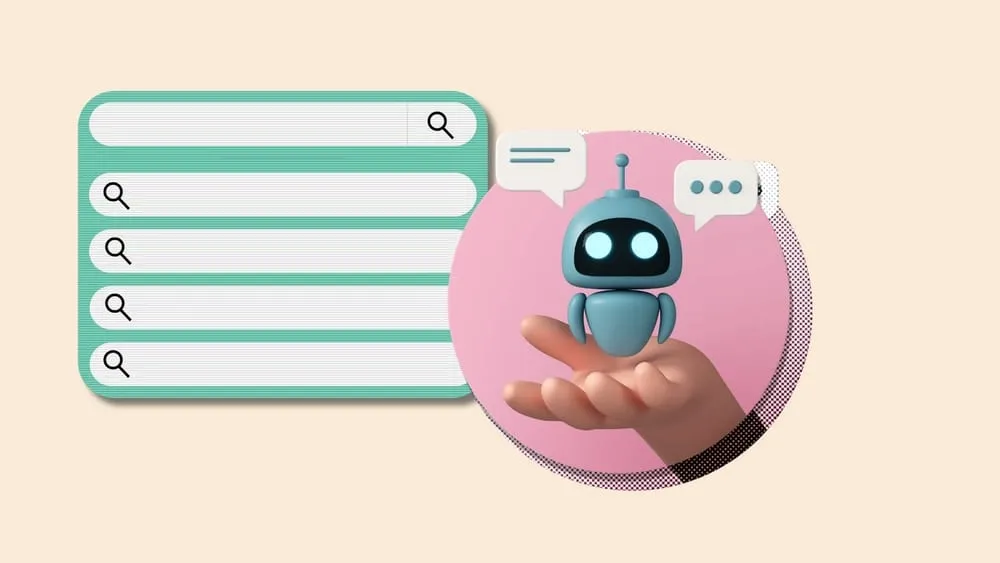ChatGPT’s referral traffic soars 98%: what publishers need to know
As ChatGPT directs more traffic to publishers, the question shifts from volume to value.

Referral traffic from ChatGPT to news and media websites has nearly doubled in just four months, according to data from Similarweb shared with Digiday.
In January 2025, ChatGPT referred around 123.2 million visits. By April, that number surged to 243.8 million—a 98% spike.
This article explores what’s driving the growth, which publishers are benefitting, and how marketers and media brands can respond strategically.
While AI-driven traffic is still a small slice of the total pie, the sharp rise signals a broader shift in how audiences discover and consume content online.
Short on time?
Here’s a table of contents for quick access:
- ChatGPT referrals: the numbers behind the boom
- Top publishers seeing AI-driven growth
- Context: how AI referrals compare to search
- What marketers and publishers should know

ChatGPT referrals: the numbers behind the boom
The latest Similarweb data paints a clear picture: generative AI isn’t just a novelty—it’s becoming a real traffic source.
- 243.8 million visits from ChatGPT to 250 media sites in April 2025
- 98% growth since January 2025
- 83% of all ChatGPT outbound clicks went to news/media sites in April (up from 64% in January)
What’s behind the surge? As ChatGPT usage grows, more users are clicking through to source articles provided in AI responses—especially for news, finance, health, and how-to content.
This shift is part of a wider pattern in online behavior. According to Adobe, U.S. web traffic from generative AI assistants grew tenfold between July 2024 and February 2025.
More users now say they use tools like ChatGPT instead of Google for ecommerce, product discovery, and decision-making.

Top publishers seeing AI-driven growth
Several major outlets are already seeing the upside. In April 2025:
- The Guardian and Reuters each received ~1.5 million visits from ChatGPT
- The BBC saw a 188.9% increase in AI-referred traffic
- Fox News gained 166.3%, and
- The Independent spiked 157.7% month-on-month
These gains correlate with higher content visibility in ChatGPT’s responses—especially for publishers with content licensing deals or robust SEO for AI indexing.
However, it's worth noting: even with this growth, AI referrals remain a small fraction of overall traffic. In January 2025, ChatGPT accounted for less than 0.1% of visits to 14 leading media sites.

Context: how AI referrals compare to search
Despite the rapid rise, ChatGPT and other generative AI platforms still lag far behind traditional search engines like Google in terms of raw traffic volume.
But AI referrals are beginning to close the gap in quality.
Adobe’s report notes that engagement and conversion rates from AI referrals now match or exceed general traffic.
As generative assistants answer user questions more precisely, they’re guiding users closer to purchase decisions—particularly in verticals like travel, retail, and banking, where AI-referred traffic has doubled every 2–3 months since mid-2024.
What marketers and publishers should know
The AI traffic surge brings both upside and risk. Here’s what matters now:
1. Optimize content for AI discovery
Generative AI uses different signals than traditional search. Publishers should:
- Use structured data and schema markup to make articles machine-readable
- Ensure headlines, subheadings, and intros clearly reflect the article’s core value
- Reassess content formats to align with conversational queries (e.g., Q&A, explainers)

2. Build relationships with AI platforms
Content licensing deals—like the one reportedly signed by The Guardian—could offer first-mover advantage. Publishers that proactively partner with platforms like OpenAI or Google Gemini may secure higher visibility and monetization in AI summaries.
3. Track and test referral quality
Not all AI traffic is equal. Publishers should segment ChatGPT referrals in their analytics and measure bounce rates, time-on-site, and conversions separately to understand true ROI.
4. Diversify revenue beyond display ads
AI tools increasingly answer questions directly, reducing the need for users to click through. This may erode pageview-based ad revenue. Brands and publishers should accelerate efforts around:
- Paid subscriptions
- Sponsored newsletters
- Branded content and community offerings
5. Stay engaged in attribution and ethics debates
As AI-generated content becomes more common, ensuring proper attribution and compensation will remain a hot topic. Publishers should monitor evolving regulations and advocate for transparent usage terms with AI companies.
ChatGPT’s referral traffic may still be small in absolute terms, but its trajectory signals a fundamental shift. As generative AI becomes a mainstream tool for information discovery, publishers and marketers must rethink how their content is surfaced, consumed, and monetized in the AI era.
Now’s the time to experiment, analyze, and adapt—before AI goes from fringe to first-click.







